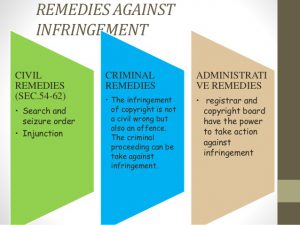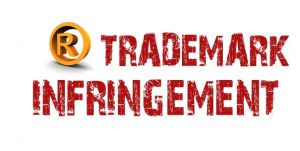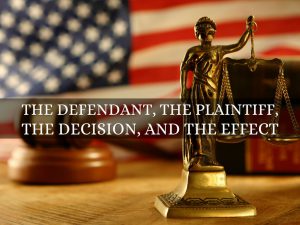Remedies with respect to infringement under the copyright law
Remedies with respect to infringement under the copyright law:

It would be useful to have an insight into copyright law for a proper understanding. There are three types of remedies against infringement of artistic copyright which may be available in respect to a trademark label etc. qualifying as an artistic copyright. These are civil remedies, criminal remedies and administrative remedies, but only civil remedies are being mentioned.
Civil remedies:

Civil remedies for enforcement of copyright, if any in the trademark label, can be invoked by the owner of the copyright in the trademark label or an exclusive licensee of the copyright or in certain cases, publisher of the trademark label. Civil remedies include injunction, damages, account of profits, delivery of infringing marks and damages for conversion. In case of innocent infringement a person is not entitled to any of these remedies other than an injunction or a decree for profit made by the infringing party
Injunctions:

Injunction is the most important remedy against infringement. Injunction may be interlocutory, perpetual or mandatory. Temporary or interlocutory injunction is granted after the suit for infringement is filed, and during the pendency of the suit. If a case for grant of temporary injunction is made out, the court may issue such an order. Perpetual injunction, on the other hand, is granted to the plaintiff to prevent the infringement of an artistic copyright in a trademark label in future. The relief of perpetual or permanent injunction is granted only at the conclusion of the trial. In order to compel the performance of certain acts, the court in its discretion, may grant a mandatory injunction to prevent infringement and also to compel the performance of requisite acts.
Immediate remedy:
The immediate remedy against infringement available to an aggrieved party is a temporary injunction. It is a discretionary remedy. For an interlocutory or temporary injunction, the plaintiff has to
- Make out a prima facie case for the relief sought,
- Show that the balance of convenience is in his favour
- That if the interlocutory injunction is not granted it will cause irreparable injury to the plaintiff. If the court is satisfied that all the conditions are fulfilled, it may issue a temporary injunction to restrain the defendant from committing infringement.
For example: In Brooke bond vs. Sona spices, 1990 IPLR 133, the plaintiff was selling spices under the mark SONA. The trademark containing an artistic work had been registered under CRA, 1957. The defendants had registered the word SONA on a label as a trademark for spices. They (defendant) altered their labels so as to make it similar to the alterations made by plaintiffs from time to time in respect of their own labels. The plaintiffs filed a suit for the infringement of copyright in their labels and applied for interlocutory injunction. The madras high court granted an interim injunction in respect of infringement of copyright and passing off, because a prima facie case was made out.
Mareva injunction:
There is another type of injunction known as “Mareva injunction”. The Mareva injunction is granted to restrain the defendant from disposing of their assets within the jurisdiction until the trial ends or judgement in the action for infringement is passed. Such an injunction is granted where there is a danger of the defendant disposing off or transferring his assets out of the jurisdiction of the court. The purpose of such an injunction is to protect the interests of the plaintiff during the pendency of the suit.
Damages and account of profits:
The distinction between an account of profits and damages is that in the former, the infringer is required to hand over his ill-gotten gains to the party whose rights he has infringed. In the case of damages, he is required to compensate the wronged party for the losses which the party has suffered.
There are two types of damages available to the owner of an artistic copyright in a trademark label, one, under section 55 of the CRA, 1957 for infringement, and the other, under section 58 for conversion. The conversion damages are of great consequence. In conversion damages the owner of copyright is deemed to be the proprietor of all the infringing copies of the work and the total proceeds of such copies are handed over to the right holder. A very rich outfit may turn pauper as no concession is given for the cost of production of the infringing copies, but the relief has normally not been given.
Determining damages:
A plaintiff may claim both damages for infringement and those for conversion as they are cumulative and not mutually exclusive. While determining the amount of damages, the court would normally take into consideration:
- The damage sustained by the plaintiff; and
- The profits earned by the defendant.
Under the CRA, 1957, a successful plaintiff is also entitled to remedy of account of profits. But the plaintiff cannot claim both damages and account of profits made by the defendant through infringement. If the plaintiff opts for an account of profits, he is entitled to an inspection of the books of accounts.
Delivery up of infringing labels:

All infringing copies of labels and wrappers etc., which in fact is used as a trademark, in which an artistic copyright subsists, are deemed to be the property of the owner of such trademark labels or wrappers etc. who may take proceedings for the recovery of possession thereof. The owner of trademark label or wrapper can also claim damages for convention, which is a wrong in law of tort against an infringer, barring an innocent infringer. In Gem India Ltd vs. Behl electronics, the mark GEM was a registered trademark for desert coolers of plaintiff who also had registration of the trademark under the CRA. The defendants started using the same trademark GEM for their coolers without the permission of the plaintiff. The plaintiff brought a suit for infringement of his trademark and copyright. The court granted injunctive against the defendant and restrained him from manufacturing, selling or otherwise dealing in desert coolers or water coolers under the trademark GEM. The court further directed the defendant to deliver all the infringement labels, goods, blocks, pamphlets, advertisement etc., to the plaintiff.
Facility of jurisdiction at the place of plaintiff:

A suit against infringement of copyright in a trademark label can be filed under section 62 of the CRA. This provision enacts a special rule in respect of copyright infringement suits.
Section 62 permits infringement suits to be instituted in a district court within whose territorial jurisdiction the person instituting the suit actually and voluntarily resides or carries on business or personally works for gain. This is notwithstanding anything contained in the civil procedure code or any other law for the time being in force.
This gives an advantage to the proprietor of a trademark label having copyright in the get-up of label who, by combining infringement of a trademark with an infringement of copyright and passing off, can shift the territorial jurisdiction of a court from the defendant’s place to his own place. In a combined suit for trademark and copyright infringement, even though there is no sale of defendant’s goods within the jurisdiction, the court having jurisdiction under section 62 of the CRA.
Advantages of copyright registration of trademarks:

The most important benefit which has been derived out of copyright registration of a trademark has been that of localizing the jurisdiction at the place of the owner of artistic copyright in a label trademark. After the commencement of the trademarks act, 1999 this facility is also available in the case of trademark litigation, whether based on infringement or passing off. Incorporation of the above provision in trademark law has brought uniformity in the procedure followed in intellectual property litigation. The new facility of jurisdiction would reduce unnecessary involvement of copyright infringement in a trademark infringement or passing off suit, only to take the advantage of jurisdiction under section 62 of the CRA.
There may be serious international ramification of this rule. A party having a copyright in Delhi may file a suit against a foreign infringer in Delhi and after obtaining a decree under the Indian law may seek to enforce that decree against the foreigner through the foreign courts of the infringers’ own country. Such foreign country may or may not enforce the order of the Indian court depending upon where the infringement occurred, whether in India or in that country. This kind of impact of court decisions and legislations needs negotiation with other countries.
Being one of the leading service provider in Coimbatore, we can analyse and solve the clients business requirements. Highly qualified professional experts are there to support and guide you throughout the business registration process. Copyright registration and trademark registration can be done at a reasonable cost and the process can be completed within the specified duration of time. For more details -> Click here.